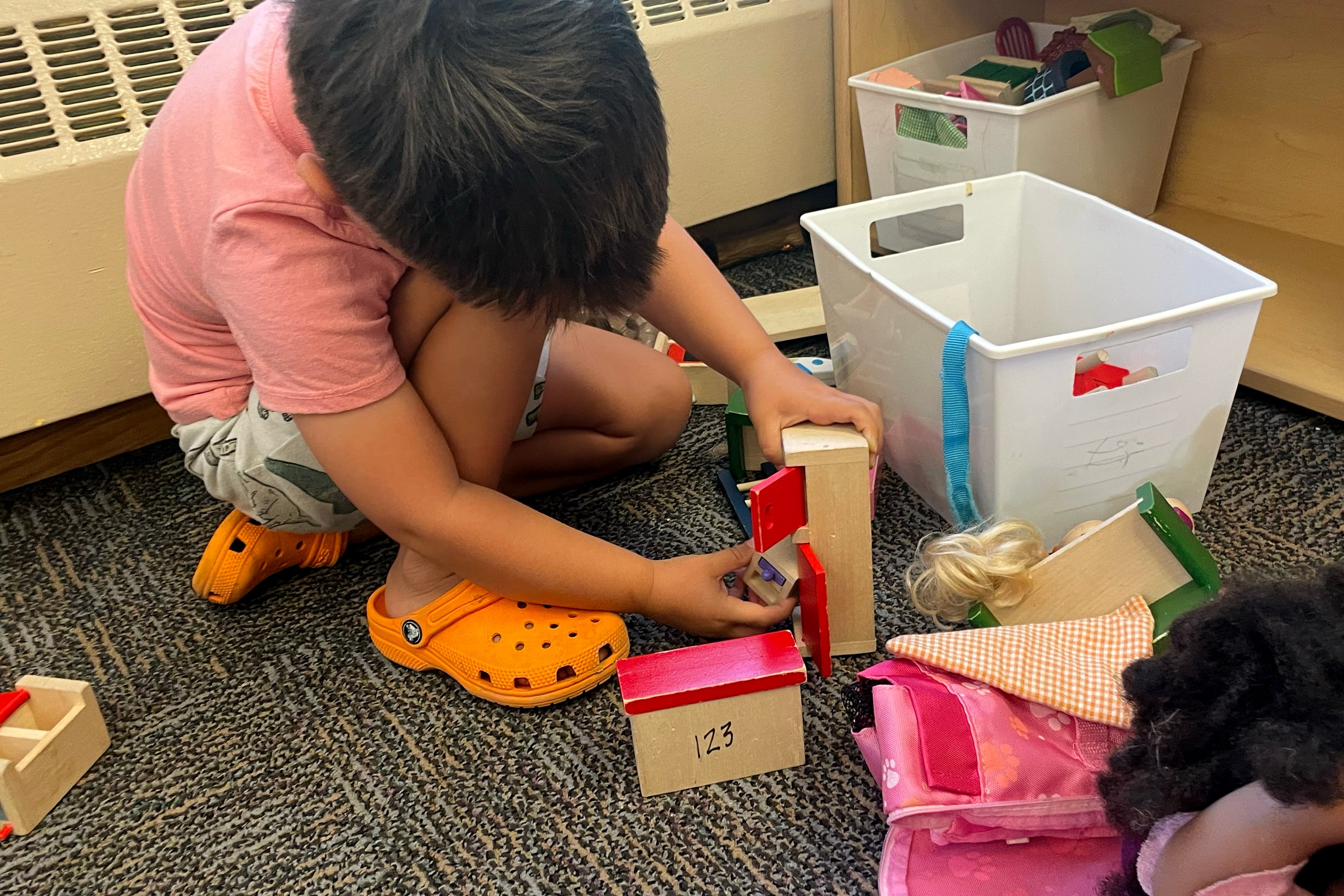Sign up for Chalkbeat’s free monthly newsletter The Starting Line to keep up with news about early childhood education.
Colorado officials want to cap preschool class sizes in the state’s new universal preschool program at 20 students next year and require at least one staff member for every 10 children in the room.
These proposed limits represent a notable change from an earlier plan that allowed classes sizes of 24 preschoolers and staff-student ratios of 1 to 12. Both are higher than what leading early childhood groups recommend.
National experts panned the earlier draft of Colorado’s universal preschool quality rules, saying that the state’s proposal set a low bar and could lead to bad outcomes for kids. The new draft rules, released Monday, are set to be finalized next spring and will take effect in the fall of 2024. A state advisory committee will weigh in, but Lisa Roy, executive director of the Colorado Department of Early Childhood, will make the final decision.
The new draft rules reflect the balance state officials are trying to strike between ensuring the high-quality program they promised and making the requirements attainable to a wide range of providers in a low-wage, high-turnover field. Universal preschool is available in lots of settings: school district classrooms, private child care centers, faith-based preschools, and licensed home-based programs.
State officials launched the $322 million universal preschool program in August without establishing rules on quality in part because they ran out of time. State preschool leaders told providers last spring to “keep doing what you’re doing.” That means wide variations in quality this year for the more than 48,000 children getting tuition-free preschool through the program.
Some children attend preschools with top scores on the state’s child care and preschool rating system, Colorado Shines, while others attend low-rated programs. Research shows that high-quality preschool produces positive short- and long-term outcomes for children.
Colorado’s rules on preschool quality, which will spell out requirements around curriculum, staff training, and child health screenings, will eventually bring more consistency to the universal preschool program, but it could take till 2026 or after to fully phase in all the requirements.
Aside from the lower class sizes and staff-student ratios, the new draft is largely similar to the first one. As in the original, it generally requires providers to use a curriculum from a resource bank approved by the state. In addition, preschool providers would be subject to on-site evaluations every three years. It also specifically states that faith-based preschools can’t include religious instruction in hours funded by universal preschool — a rule that is not in place this year, according to a spokesman for the Colorado Department of Early Childhood.
Training requirements for preschool staff are a bit different in the new draft, with employees only required to have completed four hours of training on some topics next year, down from eight in the previous draft rules. The new draft institutes the 8-hour training requirement in either 2025 or 2026 — either the third or fourth year of the program — depending on the training topic.
The new draft also delays requirements for providers to offer or coordinate health and developmental screenings for preschoolers until the 2025-26 school year.
The new draft rules don’t address preschool teacher qualifications. A separate set of rules that will take effect in the fall of 2025 will set those requirements.
The state is collecting feedback on the latest draft of the universal preschool quality rules through at least Nov. 22.
Correction: Due to incorrect information provided by the Colorado Department of Early Childhood, an earlier version of this story incorrectly stated the number of children enrolled in universal preschool this year. It is more than 48,000 not 37,000.
Ann Schimke is a senior reporter at Chalkbeat, covering early childhood issues and early literacy. Contact Ann at aschimke@chalkbeat.org





